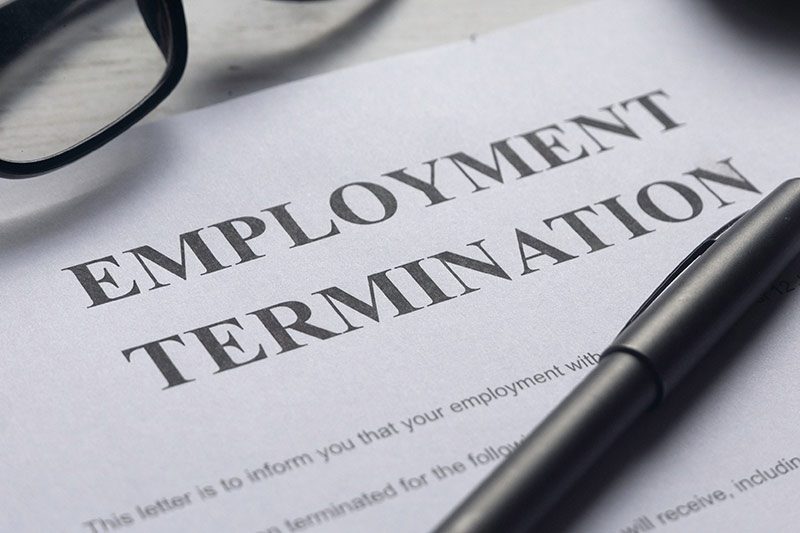Losing a job is always challenging, but it can be especially difficult if you believe your termination was wrongful. Wisconsin, like most states, generally operates under "at-will" employment, which means employers can dismiss employees for almost any reason or no reason at all. However, there are significant exceptions where termination may be illegal. Here’s a comprehensive guide from a Wisconsin employment lawyer on recognizing, documenting, and responding to wrongful termination.
1. Understanding Wrongful Termination in Wisconsin
Wrongful termination occurs when an employer unlawfully dismisses an employee in violation of federal or state law, public policy, or an employment contract. Here are a few situations where termination may be deemed wrongful in Wisconsin:
- Discrimination: Both federal laws and Wisconsin’s Fair Employment Law protect employees from termination based on race, gender, age, disability, religion, sexual orientation, and other protected characteristics.
- Retaliation: Employers cannot legally fire an employee for exercising their legal rights, such as reporting unsafe working conditions, harassment, or discrimination.
- Violation of Public Policy: If an employer terminates an employee for actions that align with public policy, such as reporting illegal activities or participating in jury duty, it may be wrongful termination.
- Breach of Contract: If there is an employment contract outlining specific termination conditions, firing an employee in violation of this contract could be considered wrongful termination.
A Wisconsin employment lawyer can help you determine if any of these situations apply to your case and guide you on the next steps.
2. Key Indicators of Wrongful Termination
If you suspect your termination was unfair, look for signs that could indicate wrongful termination:
- Discriminatory Treatment: Being treated differently than colleagues with similar performance may be a sign of discrimination.
- Sudden Performance Issues: If you receive negative evaluations or criticism after years of positive feedback, especially following a complaint or whistleblower action, this could indicate retaliation.
- Lack of Documentation: When an employer can’t provide a clear, documented reason for termination, it could be a red flag.
- Hostile or Discriminatory Comments: Comments about protected characteristics (like age or gender) made by supervisors or colleagues can strengthen a wrongful termination claim.

3. Steps to Take if You Suspect Wrongful Termination
If you believe your termination was wrongful, there are several actions you can take to protect your rights:
Step 1: Document Everything
Collect any relevant information leading up to and following your termination. This includes emails, performance reviews, statements from coworkers, or documentation of any complaints you’ve made.
Step 2: Request an Explanation
Even in an at-will state like Wisconsin, you can ask your employer for a specific reason for your termination. Their response (or refusal to provide one) can be valuable information for a wrongful termination claim.
Step 3: File a Complaint with the Equal Employment Opportunity Commission (EEOC)
For cases involving discrimination or retaliation, you can file a complaint with the EEOC. A Wisconsin employment lawyer can guide you through this process to ensure all requirements and deadlines are met.
Step 4: Consult a Wisconsin Employment Lawyer
If you suspect wrongful termination, consulting a Wisconsin employment lawyer is highly recommended. An experienced attorney can help determine if you have a valid case, gather additional evidence, and represent your best interests in any legal proceedings.
Contact Bykovsky Law for a Free Consultation to learn how we can help.
4. Legal Options and Remedies for Wrongful Termination
If you’ve been wrongfully terminated, a Wisconsin employment lawyer can help you pursue several potential remedies:
- Reinstatement: In some cases, you may be able to return to your position if it’s determined that your termination was illegal.
- Back Pay and Benefits: You may be entitled to compensation for lost wages, benefits, and other financial losses resulting from the wrongful termination.
- Emotional Distress Damages: If your wrongful termination caused significant emotional distress, you may be able to recover additional damages.
- Punitive Damages: In some cases, employers may be required to pay punitive damages as a penalty for their wrongful actions.
Why Consult a Wisconsin Employment Lawyer?
Navigating a wrongful termination claim can be challenging, especially with complex employment laws in Wisconsin. A skilled Wisconsin employment lawyer will understand the nuances of state and federal laws, guide you through each step of the process, and fight for the best possible outcome in your case. Whether you’re facing discrimination, retaliation, or other forms of unfair treatment, having an employment lawyer on your side can make a significant difference.
Get in touch with Bykhovsky Law for a CONSULTA GRATUITA today!
While Wisconsin’s at-will employment laws provide broad latitude for employers, they don’t give companies the right to terminate employees illegally. If you suspect your termination was wrongful, don’t hesitate to seek advice from an experienced employment lawyer. Understanding your rights, documenting your experiences, and taking swift action can help you pursue justice and secure the compensation you deserve.

